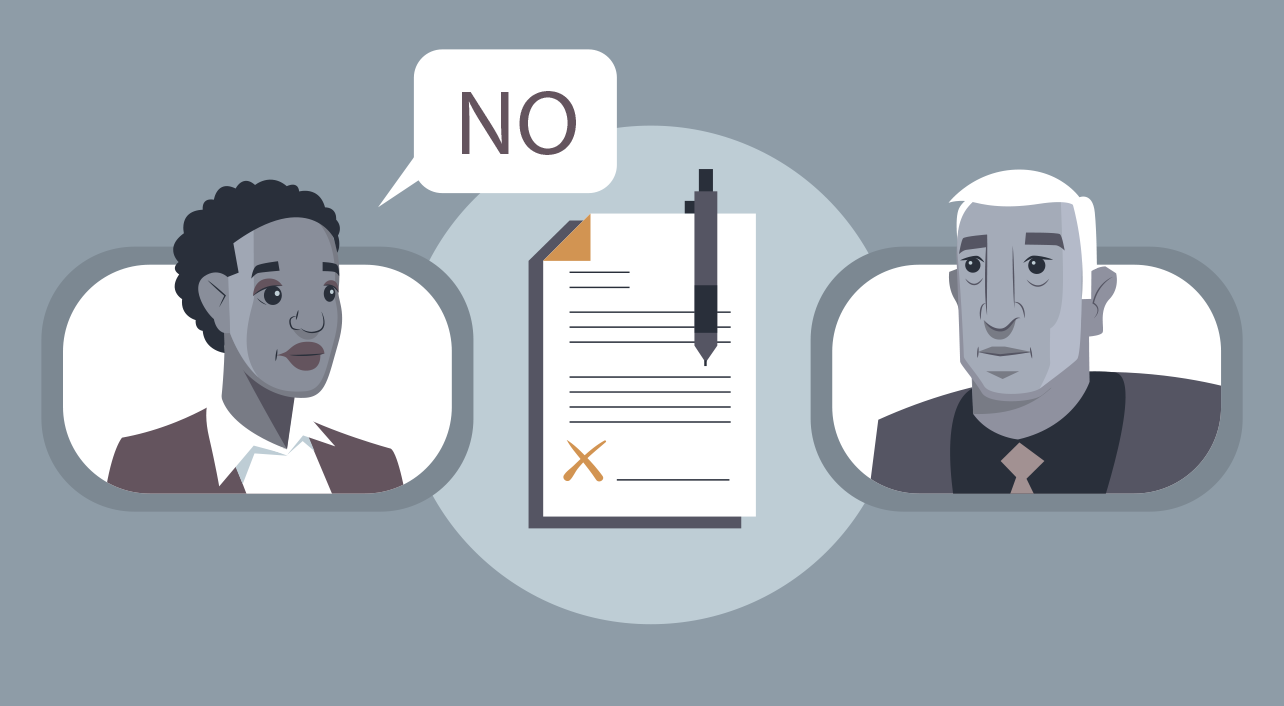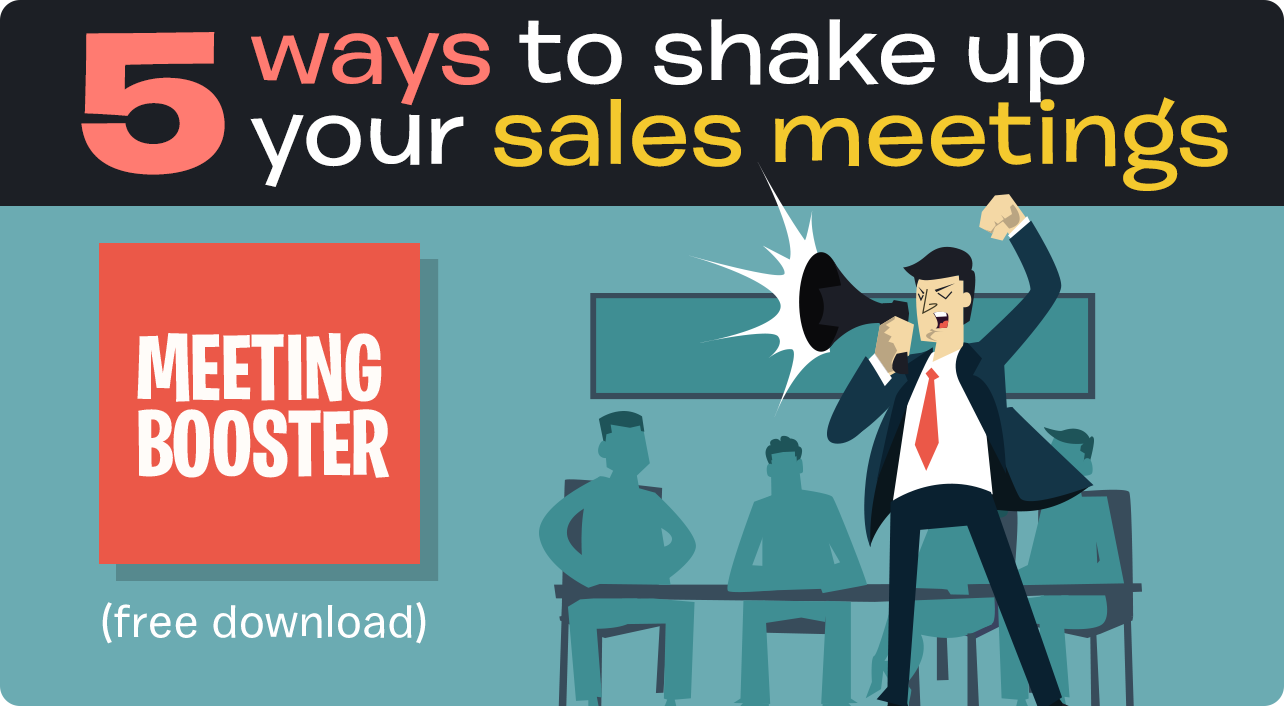- sales
- Blog post
How saying ‘No’ at the right time influences your buyer to say ‘Yes’
For salespeople, “yes” is good and “no” bad. We all want to hear customers say “yes” — to an appointment, a demo, eventually a sale. We hate to hear a “no” when we’re trying to persuade, or close. And so we say “yes” a lot ourselves. After all, how far do you get by telling a customer “no”?
Turns out, according to behavioral research, that a strategically placed “no” can get you very far indeed, while a lot of misplaced “yeses” can hurt your chances of making the sale.
Imagine a salesperson who is demo-ing a product to the COO and CFO at a prospect company. The COO asks whether the salesperson can promise that the product will integrate seamlessly with the company’s existing system, and the salesperson says “Yes.” She further promises immediate resolution in the unlikely event of a snag. The COO says they need the product up and running within three months. The salesperson says, “Yes” again. No problem. The CFO then asks whether the vendor will extend payment deadlines if there’s any unexpected installation delay, and the salesperson says, “Yes. Of course.”
The salesperson leaves the meeting feeling good. How do the COO and CFO feel?
Well, in our scenario, they’re dubious — dubious enough to want to consider other vendors, and put off any further meetings with this salesperson.
The ‘Yes Trap’
What we see here is a stark example of the “Yes Trap.” It’s a pitfall that can waylay salespeople when they’re trying to show confidence and reassure buyers. Trouble is, salespeople saying “Yes” to everything risks coming across as too good to be true.
Behavioral research illustrates how this works. In one study, psychologists at the universities of Texas and Utah did an experiment to see how people would react when somebody displayed an imperfection. They recruited volunteers and had them witness someone making a clumsy blunder – spilling coffee in a supposed accident. They found that the blunder made others view the person as even more likeable and approachable. Why? Because people are wary of those who appear “too good,” and the blunder came across as a welcome imperfection.
In another study, researchers at Northwestern University looked at online reviews for 1,800 products and found that reviews in the range of 4 to 4.7 were more likely to lead to a purchase than when the reviews approached a perfect 5. The researchers said buyers appeared to be operating on the “too good to be true” principle when faced with near-perfect scores. The lower – but still good – scores were more credible.
Strategic use of ‘No’
With this in mind, let’s look at how a different salesperson — let’s call her Salesperson #2 — might have steered clear of the Yes Trap in our meeting scenario.
The COO asks if Salesperson #2 can promise the product will integrate perfectly with the prospect company’s existing system. She says, “No, I can’t.” She explains that unforeseen challenges always arise, but her company is good at meeting these — although resolution may take a little time.
The COO then asks whether her company can meet the three-month deadline. Salesperson #2 says, “No, I’m not sure we can.” She explains that installation is complex, and she may have to adjust the timeline depending on various factors at the prospect company.
The CFO chimes in and asks about extending payment deadlines in case of installation delays. Salesperson #2 says, “No, I can’t guarantee that, but we can discuss it if the delays are fully under our control.”
A matter of credibility
What has our second salesperson done here? Has she put off her would-be buyers by being candid and realistic — by saying, “no” when she couldn’t honestly say “yes”? Well, anything is possible. But more likely, according to the research, the COO and CFO will want to continue talking with her. She leveled with them, which made her seem more human, likeable and credible. She came across as a trusted advisor who wasn’t going to put their business at risk by promising something she couldn’t deliver.
Salesperson #2 understands something about sales psychology that many salespeople do not. Saying “yes” all the time erodes credibility. Saying “no” – for example admitting that there are things your company can’t do, or needs that you might not be able to meet — builds credibility.
Remember, nobody has all the answers, and when a vendor answers yes, yes, yes to every question, it triggers the buyer’s “too-good-to-be-true” buzzer.
So in every sale, seek out a few opportunities to acknowledge your limitations by saying “no.” If you do, it’s more likely you’ll get the buyer to say “yes” at the close.
This blog entry is adapted from the Rapid Learning module “Avoiding the ‘Yes Trap’: Why Saying No Can Increase Your Credibility. ” If you’re a Rapid Learning customer, you can watch the video here. If you’re not, but would like to see this video (or any of our other programs), request a demo and we’ll get you access.
The blog post and Rapid Learning video module are based on the following research studies:
Aronson, E., et al. (1966) The effect of a pratfall on increasing interpersonal attractiveness. Psychonomic Science, 4(6), 227-228.
How Online Reviews Influence Sales. Spiegel Research Center.

Get a demo of all our training features
Connect with an expert for a one-on-one demonstration of how BTS Total Access can help develop your team.



